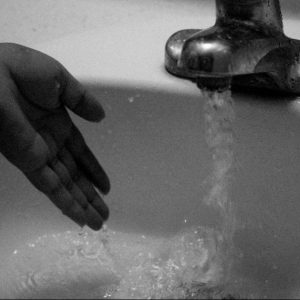The Stream, October 13: Report Condemns South Africa Response To Water Pollution
The Global Rundown
A report by researchers at Harvard concluded that South Africa’s response to acid mine drainage is inadequate and violates international human rights law. India released a draft water law to improve water sharing between states. Climate change could significantly increase river flows in Ethiopia’s Blue Nile Basin. Kazakhstan is building a desalination plant that draws water from the Caspian Sea to allow oil and gas operations to expand. Water levels continue to rise in North Carolina following Hurricane Matthew, posing serious flood risks.
“All basin states are equal in rights and status, and there is no hierarchy of rights among them, and further, in this context, equality of rights means not equal but equitable shares in the river waters.” –Excerpt from a draft National Water Framework Bill proposed by India’s central government to alleviate water-sharing disputes in transboundary river basins. (The Times of India)
By The Numbers
20 people Number killed by record floods in North Carolina caused by Hurricane Matthew. Water levels will continue rising over the next two days, and flood conditions could last through the weekend. NBC News
20-30 percent Potential increase in streamflow in Ethiopia’s Blue Nile River Basin under climate change scenarios, according to a study by researchers at Virginia Tech. More water could boost hydropower capacity, but would also carry more sediment that can fill in dam reservoirs. Science Daily
Science, Studies, And Reports
The response of the South African government to widespread acid mine drainage from gold mines near Johannesburg has been “insufficient and unacceptably slow,” according to a report by the International Human Rights Clinic at Harvard Law School. The drainage releases heavy metals into rivers and groundwater, putting surrounding communities at risk. Reuters
On The Radar
Officials in Kazakhstan aim to expand the country’s oil production by building a water purification plant in southwestern Mangistau province, providing more fresh water to communities and allowing more oil workers to make their home in the region. The plant will draw water from the Caspian Sea. Radio Free Europe
A news correspondent for Circle of Blue based out of Hawaii. She writes The Stream, Circle of Blue’s daily digest of international water news trends. Her interests include food security, ecology and the Great Lakes.
Contact Codi Kozacek




